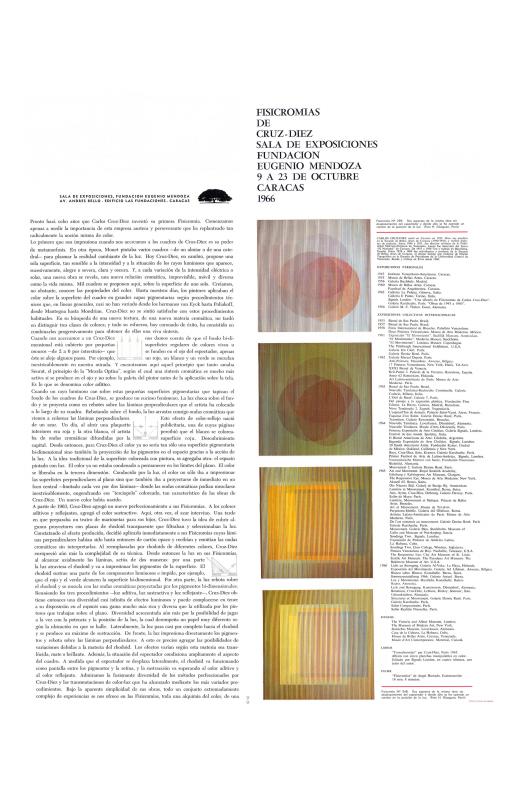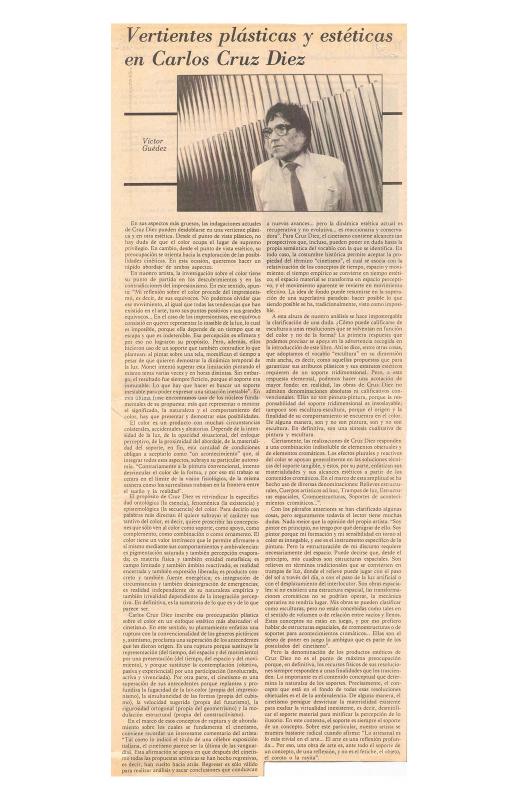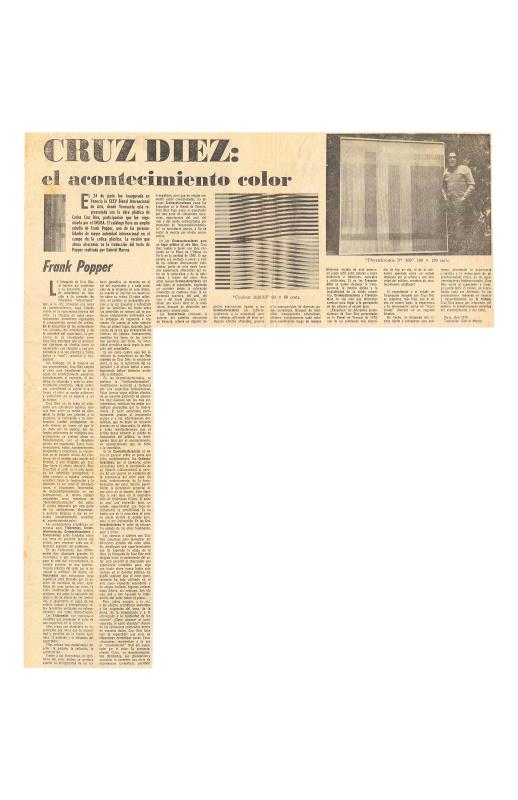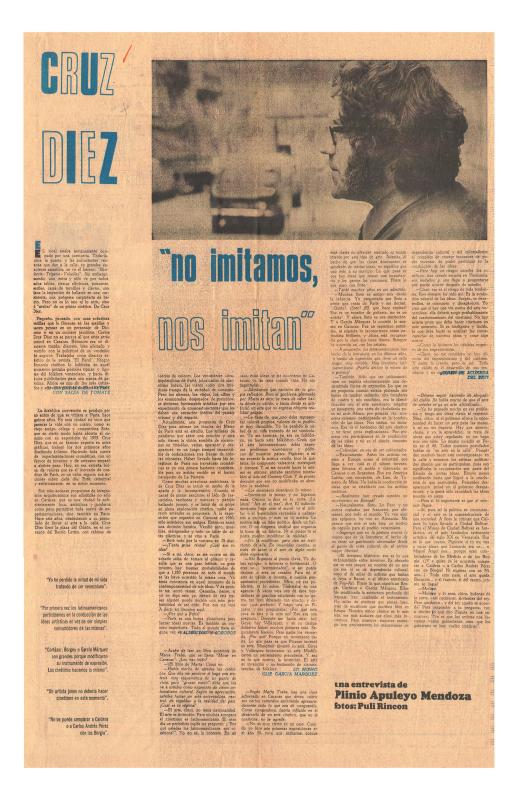Spanish-Venezuelan historian and critic José María Salvador interviewed Carlos Cruz-Diezfor the catalogue to the exhibition Carlos Cruz-Diez en la Arquitectura held at the Centro Cultura Consolidado in Caracas in 1991. Salvador extensively expresses a number of his own opinions over the course of a conversation that focuses solely on the topic of urban art and architecture. The conversation encompasses almost all inherent topics from philosophical-ethical, sociological, professional, and technical perspectives while also addressing considerations related to climate and economics.
The strategy that Salvador uses to guide, and to enrich, the interview is at once provocative and exceedingly respectful. As he warns at the interview’s opening, he plays “the devil’s advocate” at times, attempting to point out what he considers Cruz-Diez’s contradictions, specifically in his statements about the effectiveness of his works as integral parts of architecture. Salvador mentions, for instance, that the largely “two-dimensional” nature of Cruz-Diez’s works can mitigate their effect in the context of big cities characterized by large architectural volumes. Salvador also underscores that, though Cruz-Diez’s work is the result of deep and rational study, he hopes passersby will react to it in an intuitive and playful manner. Salvador observes, “you reserve the intellectual for the work’s creator and relegate the sensorial and the emotional to the one who beholds it.”
[For other texts on Cruz-Diez’s work, see Jean Clay’s untitled essay [“Pronto hará ocho años que Carlos Cruz-Diez...”] (doc. no. 858602); Victor Guédez’s article “Vertientes plásticas y estéticas en Carlos Cruz-Diez” (doc. no. 857000); Frank Popper’s essay “Cruz Diez: el acontecimiento color” (doc. no. 861671); an interview by Plinio Apuleyo Mendoza entitled “Entrevista a Cruz Diez [No imitamos, nos imitan]” (doc. no. 862938); and an interview by Gloria Carnevali that took place in Paris in February, 1981 (doc. no. 856980)].




